
World Health Organization www.who.int
The WHO is the directing and coordinating authority on international health within the United Nations’ system. Key activities include:- providing leadership on matters critical to health and engaging in partnerships where joint action is needed;
- shaping the research agenda and stimulating the generation, translation and dissemination of valuable knowledge;
- setting norms and standards and promoting and monitoring their implementation;
- articulating ethical and evidence-based policy options;
- providing technical support, catalysing change, and building sustainable institutional capacity; and
- monitoring the health situation and assessing health trends.
WHO, Department of Public Health, Environmental and Social Determinants of Health (PHE)
The WHO-PHE
The role of the Department of Public Health, Environmental and Social Determinants of Health (PHE) within the overall work of WHO is to promote a healthier environment, intensify primary prevention and influence public policies in all sectors so as to address the root causes of environmental and social threats to health. PHE develops and promotes preventive policies and interventions based on an understanding and an in-depth scientific analysis of the evidence base for environmental and social determinants of human health. Globally, an estimated 24% of the burden of disease and 23% of all deaths can be attributed to environmental factors.
Further information on the CBD-WHO joint work programme on Biodiversity and Health is also available here http://www.who.int/un-collaboration/partners/UNCBD/en/
*The UN Bioversity Convention Joint Work Programme on Biodiversity and Health has been supported by financial contributions by the European Commission, the Japan Biodiversity Fund, the Government of France, and by the generous in-kind contributions of its partners.
|
 ASEAN Centre for Biodiversity
www.aseanbiodiversity.org
The ASEAN Centre for Biodiversity (ACB), established in 2005, is ASEAN’s response to the challenge of biodiversity loss. It is an intergovernmental organization that facilitates cooperation and coordination among the ten ASEAN Member States (AMS) and with regional and international organizations on the conservation and sustainable use of biological diversity, and the fair and equitable sharing of benefits arising from the use of such natural treasures.
|
 Biodiversity and Community Health Initiative
bachinitiaive.org/
The Biodiversity and Community Health (BaCH) Initiative is global network of partners addressing issues of biodiversity, health, traditional knowledge, and community wellbeing in an integrated manner. BaCH Initiative advocates in international, regional, national and local policy forums for relevant aspects related to ecosystem services, sustainable use, public health, access to health, and livelihood security. In doing they are contributing to the implementation of the Strategic Plan for Biodiversity 2011-2020 and its 20 Aichi Targets, the Sustainable Development Goals (SDGs) 2030 agenda for Sustainable Development.
|
 Bioversity International
www.bioversityinternational.org
Bioversity International is a global research-for-development organization. We have a vision – that agricultural biodiversity nourishes people and sustains the planet. They deliver scientific evidence, management practices and policy options to use and safeguard agricultural and tree biodiversity to attain sustainable global food and nutrition security.
|
 Center for Health and the Global Environment, Harvard School of Public Health http://www.chgeharvard.org
The Harvard School of Public Health Center for Health and the Global Environment was founded in 1996 to study and promote a wider understanding of the human health consequences of global environmental change. The mission of the Center is to help people understand that our health, and that of our children, depends on the health of the environment, and that we must do everything we can to protect it.
|
 Loyola Sustainability Research Centre, Concordia University
Loyola Sustainability Research Centre
Concordia University's LSRC integrates the study of science, policy, and values in the pursuit of environmental and community sustainability. Since its establishment in 2012 its thematic focuses have been on biodiversity conservation and climate change mitigation and adaptation. LSRC aims to make a lasting contribution to the transdisciplinary dialogue that is shaping our collective understanding of sustainable futures.
|
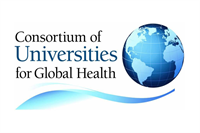 Consortium of Universities for Global Health
www.cugh.org
CUGH builds interdisciplinary collaborations and facilitates the sharing of knowledge to address global health challenges. It is dedicated to creating equity and reducing health disparities worldwide and promotes mutually beneficial, long-term partnerships in resource-rich and resource-poor countries, and aims to develop human capital and strengthen institutions' capabilities to address global health challenges.
|
 COHAB Initiative
www.cohabnet.org
COHAB Initiative is an international programme of work on human well-being and sustainable development.
|
 DIVERSITAS
www.diversitas-international.org
DIVERSITAS was established to address the complex scientific questions posed by the loss in biodiversity and ecosystem services and to offer science based solutions to this crisis. As one of the founding programmes of Future Earth, DIVERSITAS transferred all its activities to Future Earth, and its international Secretariat has closed on 31st December 2014.
|
 ECOHEALTH Alliance
www.ecohealthalliance.org
EcoHealth Alliance (EHA) is an international organization of scientists dedicated to the conservation of biodiversity. For more than 40 years, EcoHealth Alliance has focused its efforts on conservation. Today, we are known for our innovative research on the intricate relationships between wildlife, ecosystems and human health.
|
 Food and Agriculture organization of the United Nations
www.fao.org
To meet the demands posed by major global trends in agricultural development and challenges faced by member nations, the Food and Agriculture organization of the United Nations (FAO) has identified key priorities on which it is best placed to intervene including food security and nutrition; sustainable agriculture, forestry and fisheries; agricultural biodiversity and food systems.
|
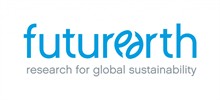 Future Earth
http://www.futureearth.org
Future Earth is an international research platform bringing together and in partnership with existing programmes on global environmental change*, Future Earth is an international hub to coordinate new, interdisciplinary approaches to research on three themes: Dynamic Planet, Global Sustainable Development and Transformations towards Sustainability.
|
 FIOCRUZ
http://portal.fiocruz.br
Fundação Oswaldo Cruz (Oswaldo Cruz Foundation, known as Fiocruz) is a prominent science and technology health institution in Latin America that is linked to the Brazilian Ministry of Health.
|
 HEAL: Health & Ecosystems: Analysis of Linkages
www.wcs-heal.org
Health & Ecosystems: Analysis of Linkages (HEAL) represents a global collaboration among leading public health and environmental conservation institutions focused on understanding relationships between the state of ecosystems and public health outcomes.
|
 Healthy Urban Microbiome Initiative
www.humiglobal.org
The Healthy Urban Microbiome Initiative (HUMI) is an innovative science and community-based initiative that seeks to understand and recreate the immune-boosting power of high quality, biodiverse green spaces in cities to maximise population health benefits, bringing savings to health budgets while delivering gains for biodiversity.
|
 International Indigenous Forum on Biodiversity
iifb.indigenousportal.com
The International Indigenous Forum on Biodiversity (IIFB) was formed During the III Conference of the Parties to the Convention on Biological Diversity (COP III) in November 1996. The IIFB is a collection of representatives from indigenous governments, indigenous non-governmental organizations and indigenous scholars and activists that organize around the CBD and other international environmental meetings to help coordinate indigenous strategies, provide advice to government parties, and influence the interpretations of government obligations to recognize and respect indigenous rights to the knowledge and resources.
|
 International Union for Conservation of Nature
www.iucn.org
The International Union for Conservation of Nature (IUCN), helps the world find pragmatic solutions to our most pressing environment and development challenges. IUCN has evolved into the world’s largest and most diverse environmental network. It harnesses the experience, resources and reach of its 1,300 Member organisations and the input of some 13,000 experts. Experts are organised into six commissions dedicated to species survival, environmental law, protected areas, social and economic policy, ecosystem management, and education and communication.
|
 Network for the Evaluation of One Health
neoh.onehealthglobal.net/
The Network for Evaluation of One Health (NEOH) aims to enable future quantitative evaluations of One Health activities and to further the evidence base by developing and applying a science-based evaluation protocol in a community of experts. Over the last years, the NEOH consortium has observed an increasing convergence of Ecohealth and One Health. There are shared values and approaches of the two concepts, including convergence in the areas of zoonoses, disease emergence, pandemic threats and ecosystem health. Each community has strengths to offer that can help to achieve global health and sustainability. Consequently, NEOH has decided to join Ecohealth International by becoming the European Chapter of Ecohealth International with the new name Network for Ecohealth and One Health, allowing for the continued use of the NEOH acronym.
|
 Pan American Health Organization
www.paho.org
Founded in 1902, the Pan American Health Organization (PAHO) is the specialized health agency of the Inter-American System and serves as the Regional Office for the Americas of the World Health Organization (WHO). Together with WHO, PAHO is a member of the United Nations system.
|
 PANORAMA
www.panoramaglobal.org
Panorama is an action tank working to solve global problems through audacious thinking and bold action. They bring together diverse perspectives to spark new ideas that create change. They partner with ambitious leaders to strengthen their organizations and achieve their goals, and initiate projects when they see gaps that need to be filled.
|
 Planetary Health Alliance
planetaryhealthalliance.org
The vision of the Planetary Health Alliance is to build a Planetary Health community that catalyzes public education and policy change through deciphering the human health impacts of global environmental change. Its mission is to strengthen the Planetary Health community by: building capacity within the field of planetary health, convening a community of practice, and informing real world decision-making and policy to improve human health.
|
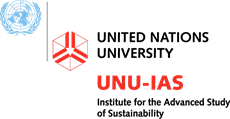 UNU-IAS
ias.unu.edu
The United Nations University Institute for the Advanced Study of Sustainability (UNU-IAS) is a research and teaching institute based in Tokyo.
Its mission is to advance efforts towards a more sustainable future, through policy-oriented research and capacity development focused on sustainability and its social, economic and environmental dimensions. The activities of the institute are in three thematic areas: sustainable societies, natural capital and biodiversity, and global change and resilience.
|
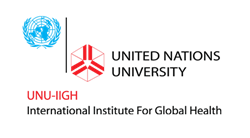 UNU-IIGH
iigh.unu.edu
The United Nations University Institute International Institute for Global Health (UNU-IIGH), established in 2007 is situated at the UKM Hospital Complex, in Kuala Lumpur, Malaysia. It undertakes research, capacity development and dissemination of knowledge related to key global health issues. The Institute contributes to the development and strengthening of health services policy frameworks and management actions, particularly for people in developing countries, and supports implementation of promotive approaches to human health.
|
 Towards a Safer World Network
http://www.towardsasaferworld.org/
The Towards a Safer World initiative (TASW) convenes a broad range of multi-sector, multi-regional stakeholders involved in whole-of-society preparedness including non-traditional partners from business and the military. TASW's diverse network is committed to maintaining the body of whole of society practice, communicating it widely, mainstreaming it within institutions, reaching out to others who can benefit from it, and learning from each other. TASW’s objective is to improve the capabilities of a network of 300 committed champions of whole-of-society preparedness and their institutions through sharing and applying best practice, and through capacity-building events, simulations, workshops, training and research.
|
 TRAFFIC
www.traffic.org
TRAFFIC, the wildlife trade monitoring network, is the leading non-governmental organization working globally on trade in wild animals and plants in the context of both biodiversity conservation and sustainable development.
|
 World Agroforestry Centre
www.worldagroforestry.org
The World Agroforestry Centre (ICRAF) is a CGIAR Consortium Research Centre with headquarters are in Nairobi, Kenya, and six regional offices. Its mission is to generate science-based knowledge about the diverse roles that trees play in agricultural landscapes, and to use its research to advance policies and practices, and their implementation, that benefit the poor and the environment.
|
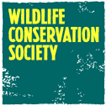 Wildlife Conservation Society
www.wcs.org
The goal of the Wildlife Conservation Society (WCS) is to conserve the world's largest wild places in 15 priority regions, home to more than 50% of the world's biodiversity.
WCS, Animal and Human Health for the Environment (AHEAD)
WCS, AHEAD
AHEAD is affiliated with WCS. AHEAD conservation and development efforts focus on several themes of critical importance to the future of animal agriculture, human health, and wildlife health. These include zoonoses, competition over grazing and water resources, disease mitigation, local and global food security, and other potential sources of conflict related to land-use decision-making in the face of resource limitations.
|
 World Organization for Animal Health
www.oie.int
The need to fight animal diseases at global level led to the creation of the Office International des Epizooties through the international Agreement signed on January 25th 1924. In May 2003 the Office became the World Organisation for Animal Health but kept its historical acronym OIE. The OIE is the intergovernmental organisation responsible for improving animal health worldwide. |
The University of Geneva, World Health Organization and Convention on Biological Diversity have partnered to create a new module on “Management of Ecosystems under Global Changes: Implication for Human Health” for the massive open online course on Global Health at Human-Animal-Ecosystem Interface the University of Geneva, launched for the first time on on the International Day of Biological Diversity, on 22 May 2018. The interdisciplinary course is open access and free of charge on the Coursera platform. Sign up for the free MOOC at https://www.coursera.org/learn/global-health-human-animal-ecosystem